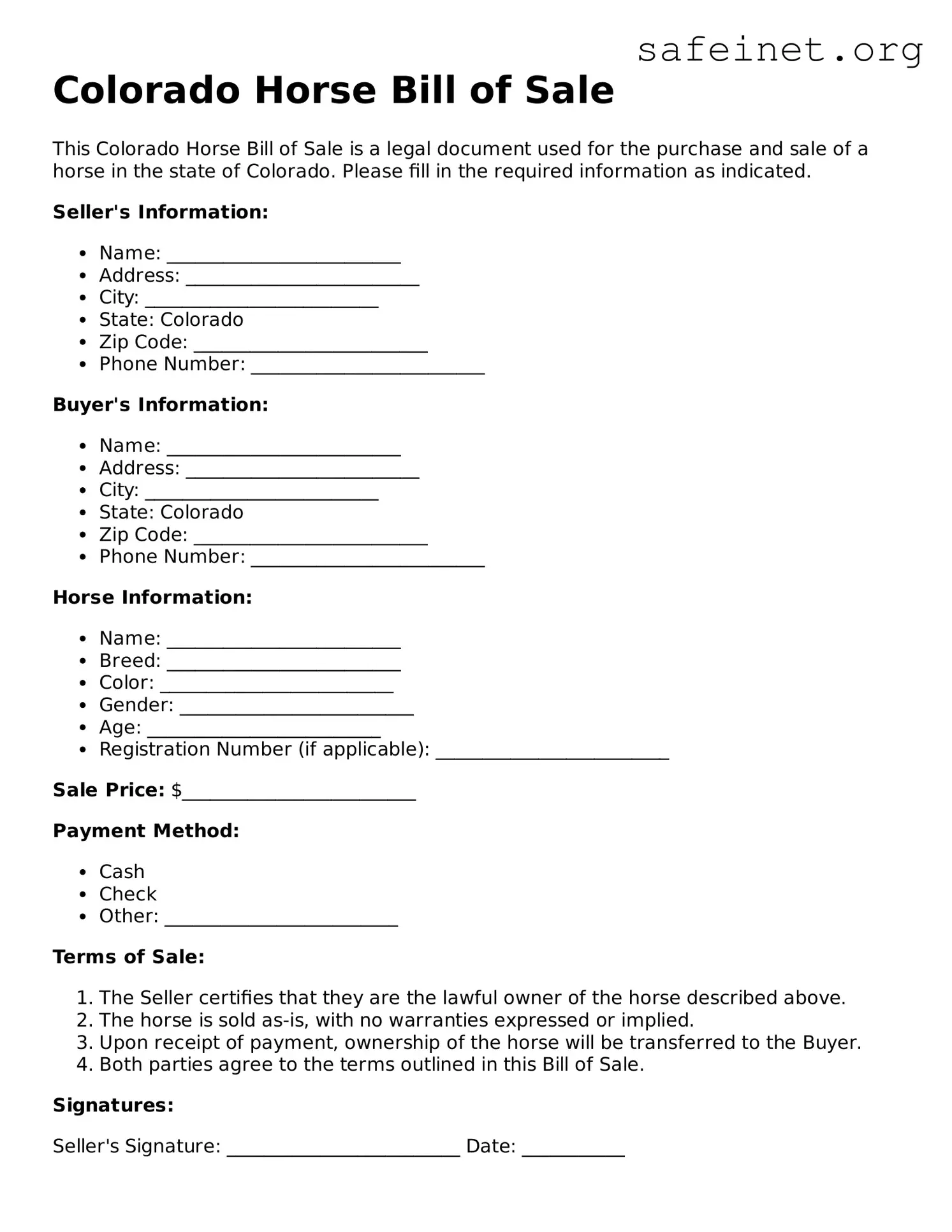What is a Horse Bill of Sale in Colorado?
A Horse Bill of Sale is a legal document that records the sale of a horse from one party to another. It serves as proof of the transaction and can be important for both the seller and buyer for various reasons, including ownership transfer and record keeping.
Is a Horse Bill of Sale required in Colorado?
While a Horse Bill of Sale is not legally required to sell a horse in Colorado, it is highly advisable to have one. This document protects the interests of both parties and provides a clear record of the sale, which can help prevent future disputes.
What information is included in a Horse Bill of Sale form?
The Horse Bill of Sale form typically includes vital information such as the names and contact details of the seller and buyer, a description of the horse (including breed, age, color, and any identifying marks), the purchase price, and any terms or conditions of the sale. It may also include a statement regarding the horse's health or behavior.
Do I need to have the Horse Bill of Sale notarized?
No, notarization is not a requirement for a Horse Bill of Sale in Colorado. However, having the document notarized can lend additional credibility and may be helpful if any disputes arise in the future.
Can I return the horse after completing a sale?
Whether or not a buyer can return a horse typically depends on the terms outlined in the Horse Bill of Sale. If a return policy is included, both parties should be clear on the conditions under which the horse can be returned. Without a written agreement, the sale is generally considered final.
How can I ensure the horse I am buying is free of health issues?
Prior to the sale, it is advisable to have the horse examined by a veterinarian. A pre-purchase exam can identify any underlying health issues that may not be immediately visible. The results of this exam can inform your decision and should ideally be included in the Bill of Sale for record-keeping purposes.
What if the horse has a pre-existing condition?
It is crucial to disclose any known health issues in the Horse Bill of Sale. Both parties should discuss and document any existing conditions. This transparency can protect both the seller from potential liability and the buyer from unexpected medical costs.
Is a Horse Bill of Sale legally binding?
Yes, a properly filled-out and signed Horse Bill of Sale is generally considered a legally binding contract in Colorado. This means both the buyer and the seller are held to the terms outlined in the document, provided there has been no fraud or coercion involved in the agreement.
How can I obtain a Horse Bill of Sale form?
You can find templates for Horse Bill of Sale forms online, or you may choose to create one specific to your needs. If you prefer, local equestrian businesses or legal supply stores may also have forms available. Ensure that any form you use complies with Colorado laws and is tailored to accurately reflect the sale transaction.
What should I do if disputes arise after the sale?
If disputes arise regarding the sale of the horse, you may want to first refer to the Horse Bill of Sale to clarify the terms agreed upon. Open communication between both parties can often resolve misunderstandings. If resolution is not possible, seeking assistance from a legal professional may be necessary to explore your options.
